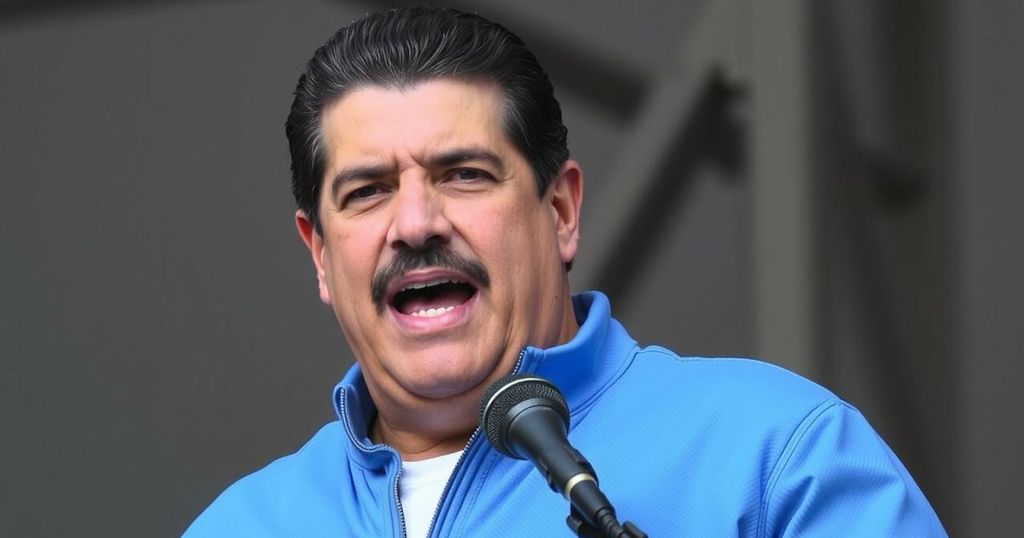Nicolás Maduro is set to begin his third term on January 10 amid accusations of electoral fraud, with many believing that opposition candidate Edmundo González actually won. The legitimacy of the election has been challenged by multiple sources, including the Carter Center. Protests are anticipated, but the government’s crackdown on dissent complicates the opposition’s efforts. The incoming Trump administration’s approach to Maduro remains uncertain, raising significant questions about U.S. foreign policy towards Venezuela.
Venezuelan President Nicolás Maduro is set to commence his third six-year term on January 10, amid serious allegations concerning the integrity of the recent election held on July 28. Despite official claims of victory by over one million votes, many citizens and international observers argue that the opposition candidate, Edmundo González, won decisively. The Carter Center, which monitored the election, confirmed the legitimacy of the opposition’s tally sheets, casting further doubt on Maduro’s purported success.
While Maduro’s inauguration may solidify his controversial policies, the opposition, embattled by a harsh crackdown that has seen over 2,000 detentions, is calling for mass protests. Prominent opposition leader, María Corina Machado, plans to re-emerge from hiding to rally support against Maduro’s regime. Concurrently, Edmundo González, acknowledged by the United States as the rightful president-elect, has recently surfaced from hiding to gather support internationally, despite the Venezuelan government’s attempts to apprehend him.
Questions loom regarding the response of the incoming Trump administration towards Maduro, as President Trump once strongly opposed the Venezuelan leader. Trump’s earlier maximum pressure approach may see a reevaluation given the humanitarian crisis, which has sparked the exodus of 7.7 million Venezuelans since 2014. Analysts anticipate a strategic pivot reflecting lessons learned from previous policies, with key figures likely playing significant roles in shaping the future U.S. stance on Venezuela.
Complicating the situation further, Maduro’s regime has detained foreigners allegedly to leverage negotiations with Trump’s administration; the nature of these charges remains gravely concerning, reflecting the broader issues at hand.
The political situation in Venezuela has been marked by significant turmoil and a humanitarian crisis, characterized by extensive corruption, economic instability, and widespread food shortages under President Nicolás Maduro’s more than eleven years in power. The legitimacy of the electoral processes in the country has been heavily challenged, with numerous allegations of vote-rigging and suppression of opposition. The stark contrasts between Maduro’s claims of electoral success and the opposition’s assertions of victory have made the nation’s political climate increasingly fraught.
In conclusion, Nicolás Maduro’s upcoming inauguration amidst claims of electoral fraud poses critical challenges to Venezuela’s political landscape. The opposition continues to seek legitimacy and support to contest his rule, while the United States remains a key player in determining the future of Venezuela through potential policy adjustments. The international community is closely monitoring the developments as the situation evolves, pointing to a long and difficult road ahead for Venezuelan democracy.
Original Source: www.foxnews.com






